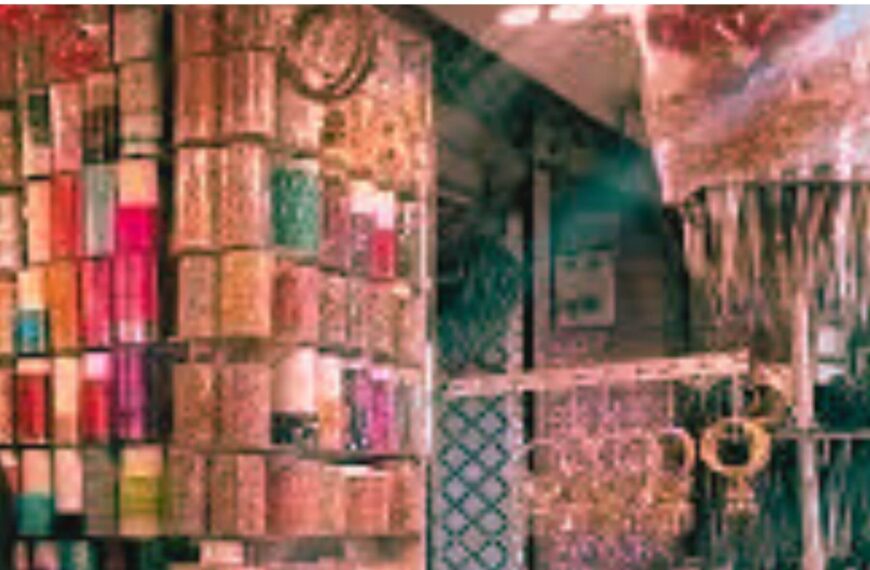History always has some stories to tell, some mysteries to reveal, some experiences to share; that is why a lot of tourist places get crowded by visitors with curiosity in their eyes. Primarily history makes a person living in the present understand both past and present. Knowing the past helps one understand the origins of modern political and social problems. In fact, a lack of historical knowledge prevents people from truly understanding the world we live in, opines Tapati, in the regular column, exclusively in Different Truths.
What is the point in knowing the events of the past? In the eyes of cynics, studying history requires memorisation and recall of facts and dates – but little else. Many people have dismissed it as a curious indulgence, a quaint but worthless fascination about vanished societies and dead people. How do the events and things, old literature from the past help us to live in the present? Why remain soaked in remote past as an escapist, to run away from the umpteen number or troubles of the present? These are few of the common questions I have to face every moment as a student of history.
But when I take a look back, the amazing treasures history has in its coffer, put an end to all those queries.
History always has some stories to tell, some mysteries to reveal, some experiences to share; that is why a  lot of tourist places get crowded by visitors with curiosity in their eyes. Primarily history makes a person living in the present understand both past and present. History helps us to understand periodical changes and human evolution; it narrates how different communities, nation, and countries came to a state where we live. Knowing the past helps one understand the origins of modern political and social problems. In fact, a lack of historical knowledge prevents people from truly understanding the world we live in.
lot of tourist places get crowded by visitors with curiosity in their eyes. Primarily history makes a person living in the present understand both past and present. History helps us to understand periodical changes and human evolution; it narrates how different communities, nation, and countries came to a state where we live. Knowing the past helps one understand the origins of modern political and social problems. In fact, a lack of historical knowledge prevents people from truly understanding the world we live in.
At the same time history is not just remembering incidents and dates, but to interpret the journey our forefathers undertook with great bravery and courage.
It is an act of both investigation and imagination that seeks to explain how people have changed over time. Historians use all forms of evidence to examine, interpret, revisit, and reinterpret the past. These include not just written documents, but also oral communication and objects such as buildings, artifacts, photographs, and paintings. Historians are trained in the methods of discovering and evaluating these sources, and the challenging task of making historical sense out of them. They do not always agree with interpretations of the past. Their debates and differences help enhance our understanding of human development.
 Knowledge of the past is a great teacher; it explains how and why people behaved as they did, whether they are historical figures like Ashoka, Julius Caesar, and Hitler or any modern political ruler invading the borders of his neighbour. In fact, every aspect of life has a story behind it.
Knowledge of the past is a great teacher; it explains how and why people behaved as they did, whether they are historical figures like Ashoka, Julius Caesar, and Hitler or any modern political ruler invading the borders of his neighbour. In fact, every aspect of life has a story behind it.
From cave dwelling to latest technological living, the modern manner of living has been achieved not by one single leap but through flair of steps. History unfolds that flair of steps. Knowing past educates the ways in which people, communities, and nations did interact, the nature of power and leadership, the difficulties of governments and economic management, the impact of war and conflicts on societies. Themes and issues like these never die; only the people, places and details change.
Scientific progress has immensely influenced the lives of common people; at the same time, the animal instincts of humans or their primitive nature are still under a lens, with millions of people still starving, underprivileged ones living under abuses and girls and women in the lurch of insecurity and rapes. Today our society has become free from many hurdles, physical and social impediments. But does it protect us from all evils of society and fresher challenges? The answer is negative.
We live in the present, plan for and keep worrying about the future. Given all the demands living in the  present and anticipating what is yet to come, why bother with what has been in the past? Through the study of history, we can investigate and interpret why society developed as it has and determine what influences have affected the past and present and shape the future. It helps one to understand the immense complexity of our world and provides insights to help cope with the problems and possibilities of the present and future.
present and anticipating what is yet to come, why bother with what has been in the past? Through the study of history, we can investigate and interpret why society developed as it has and determine what influences have affected the past and present and shape the future. It helps one to understand the immense complexity of our world and provides insights to help cope with the problems and possibilities of the present and future.
History thus provides the context for the modern world. It is impossible to understand present situations and states like Russia, China or Spain for example, without knowing how these societies have been shaped by political forces and imperialism, war, revolution, development of communism and the Cold War. Even after having survived two world wars, the world is today terrified with nuclear war fronts and conflicting societies. Knowledge of the historical events at different stages prepares us to live more humanely in the present and to meet the challenges of the future. History presents us with both glory and gory; it remains a means of scrutinising and comprehending the wisdom and folly of our forbearers.
 One step forward always leaves a footprint behind. Hence the question comes as to what happened in older times? We need to revisit history while seeking a solution. We have acquired social flexibility with advanced science and technological progress, but remain worried about challenges of being civilised.
One step forward always leaves a footprint behind. Hence the question comes as to what happened in older times? We need to revisit history while seeking a solution. We have acquired social flexibility with advanced science and technological progress, but remain worried about challenges of being civilised.
Here I love to share a very relevant quote from an interview of Professor Rajani Kant, a renowned economist, and philosopher: “Around the 17th century, post-Renaissance Europe struck upon a brand new model of societal being, best described as Eurocentric modernism. It was both a prescriptive ontology and epistemology, that is, a philosophy, politics, societal framework, an economic modus, and a way of living, thinking and interacting. It is this paradigm that has brought the entire world today to the brink of various kinds of extinctions that we know or anticipate: of the environment and planet itself….”
It looks like another great lesson from history. Exploring the past may give some answer?
©Tapati Sinha
Photos from the Internet
#History #LayersofHistory #LearningHistory #Knowinghistory #LearningAboutThePast #PostRenaissance #EurocentricModernism #PastAndPresent #NowAndThen #DifferentTruths




 By
By
